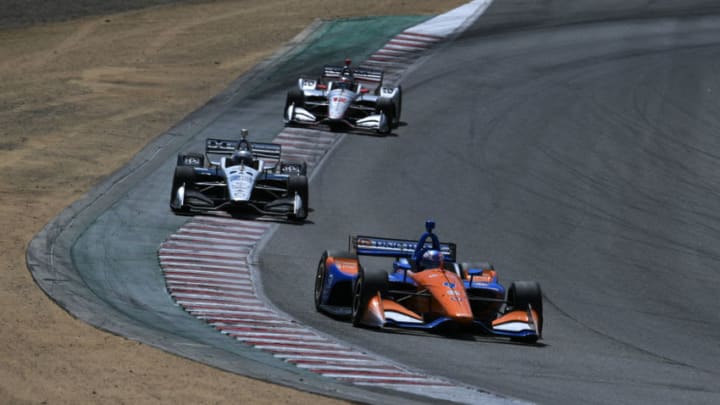Don’t take IndyCar’s veterans for granted
By Asher Fair

While IndyCar has seen some big-name drivers retire in recent years, there are still plenty of veterans left. Don’t take them for granted while they’re still here.
In IndyCar, just like in all other sports, retirement is inevitable, no matter how good you are nor what you’ve done over the course of however long you’ve been competing in the sport.
But looking back at the last decade, IndyCar did not really lose a ton of big-name drivers, at least nowhere near to the extent of NASCAR, which saw the likes of Mark Martin, Jeff Gordon, Greg Biffle, Carl Edwards, Tony Stewart, Dale Earnhardt Jr., Matt Kenseth, Kasey Kahne, Jamie McMurray, David Ragan and Paul Menard walk away, among quite a few others.
The most notable drivers who left IndyCar in the 2010s were probably Dario Franchitti and Helio Castroneves, and Castroneves still competes in two races each year. Sebastien Bourdais, who was originally slated to compete in 2020, and Ryan Briscoe are two of the others, and we should also mention the tragic passings of Dan Wheldon and Justin Wilson.
More from IndyCar
- IndyCar: Two teams with no drivers confirmed for 2024
- IndyCar: Chip Ganassi Racing news hints Alex Palou announcement
- IndyCar: ‘Addition by subtraction’ could pay off in a big way
- Team Penske should make a bold driver signing for 2024
- IndyCar: 5 teams that still have open seats for 2024
Now take a look at the 2020 driver lineup.
It is no secret that IndyCar, like NASCAR and Formula 1, has gotten younger in recent years, and it is undeniable that the series is in the midst of a youth movement.
Most notably, Colton Herta became the youngest winner in IndyCar history at the age of 18 last March, and he became the first rookie to win two races in his first year since Robert Doornbos won twice in the 2007 Champ Car season.
But the 2020 driver lineup, while it isn’t yet officially set in stone with more than two months to go before the season begins, also features quite a few veterans who competed throughout most if not all of the last decade, and it could set up a decade that, unlike the 2010s, is loaded with retirements of big-name drivers.
Five-time series champion and 2008 Indy 500 winner Scott Dixon is 39. 2004 champion and 2013 Indy 500 winner Tony Kanaan is 45. 2012 champion and 2014 Indy 500 winner Ryan Hunter-Reay is 39. 2014 champion and 2018 Indy 500 winner Will Power is 38. Ed Carpenter is 38. 2017 Indy 500 winner Takuma Sato is 42. 2016 IndyCar champion and 2019 Indy 500 winner Simon Pagenaud is 35.
There are seven drivers who competed full-time throughout the last decade, with Dixon, Kanaan, Hunter-Reay, Power and Sato being those five. The two others are Marco Andretti and Graham Rahal, who seem like they were part of their own “youth movement” just yesterday. They are now 32 and 31, respectively.
How many of these drivers will still be competing in four or five years, much less at the end of the decade?
Next. Top 10 IndyCar drivers of all-time. dark
As the new decade begins, don’t take these years and these veterans for granted, because while the landscape of IndyCar has certainly changed in recent years, we really haven’t seen anything yet compared to what inevitably lies ahead.